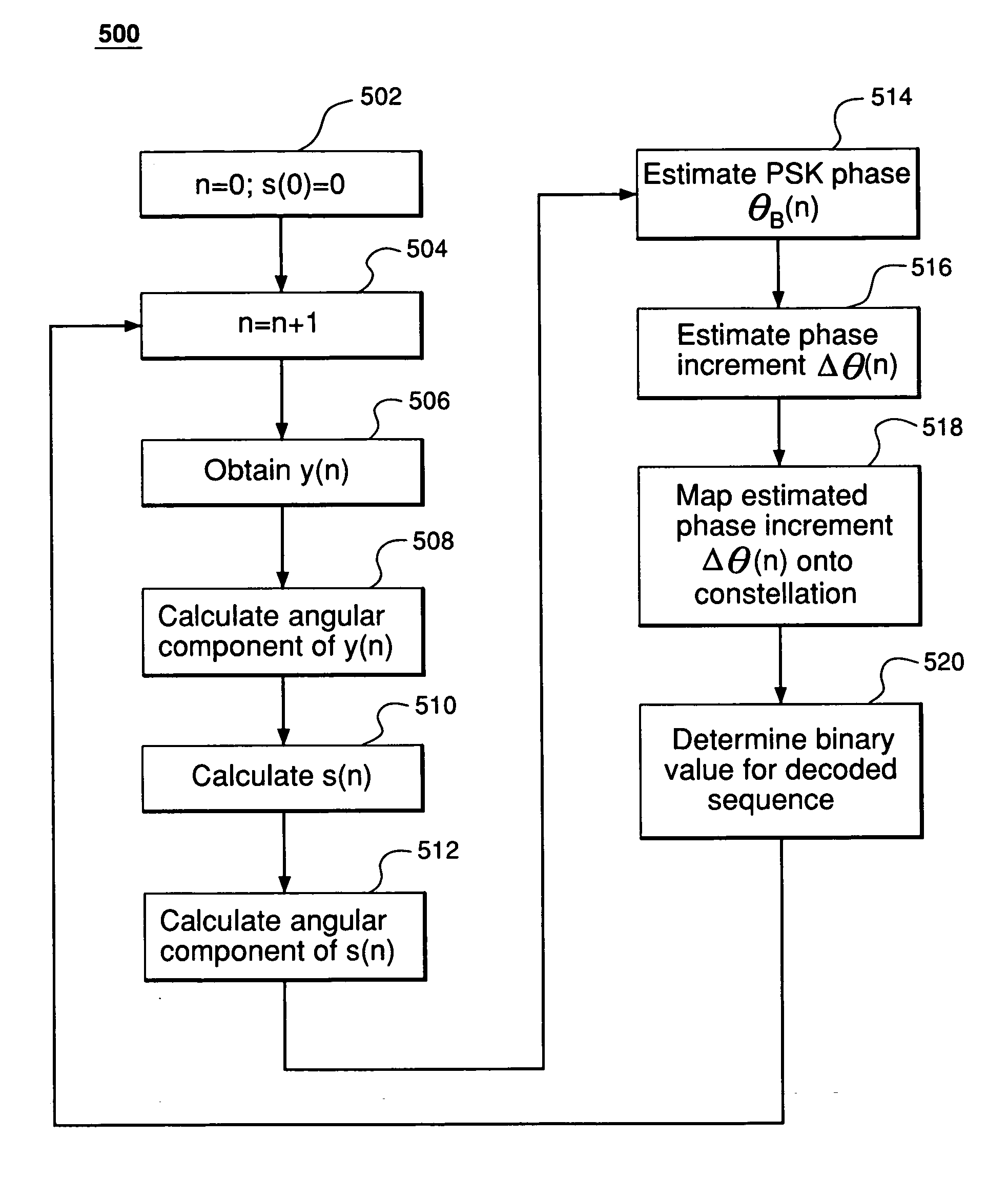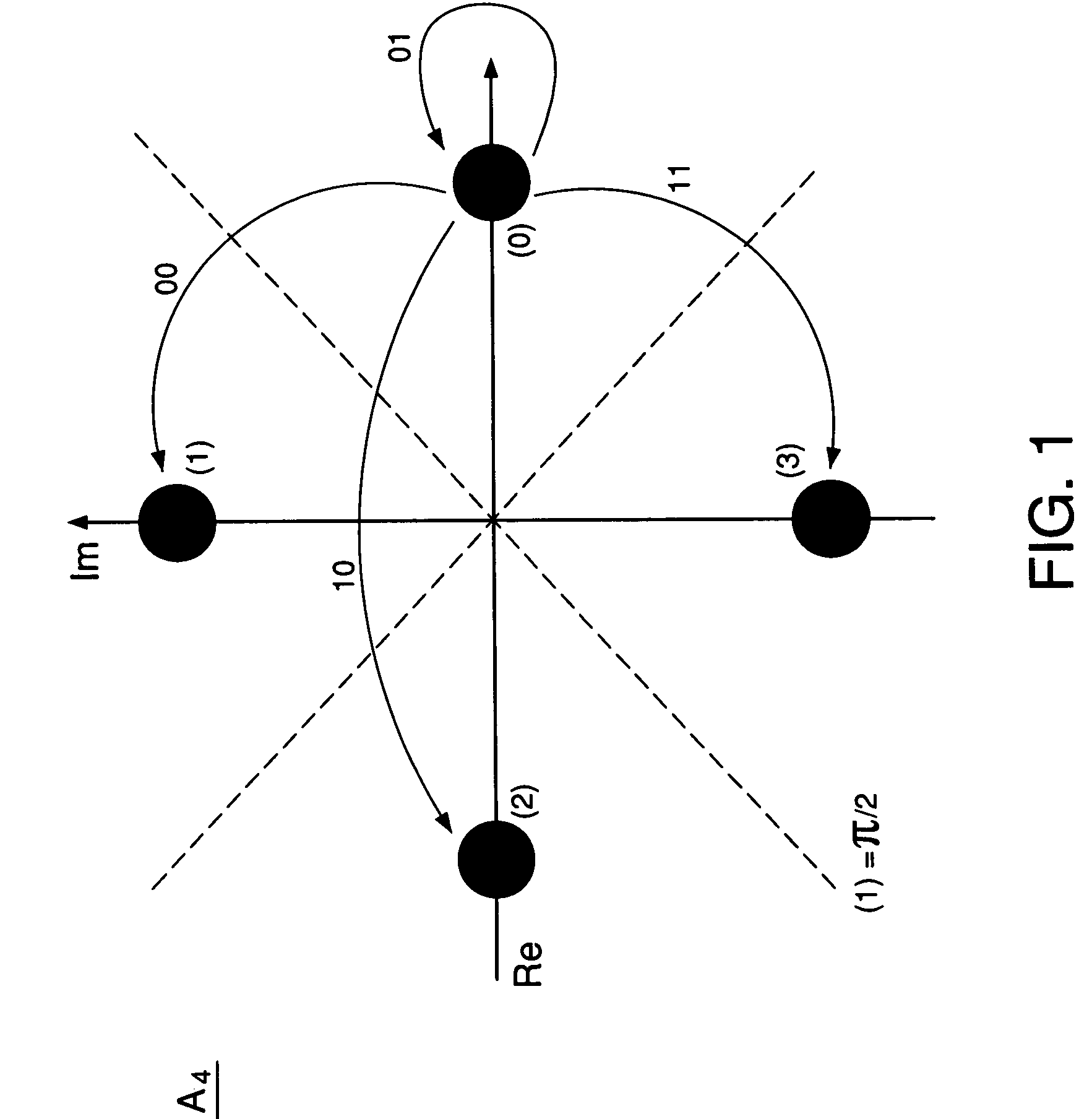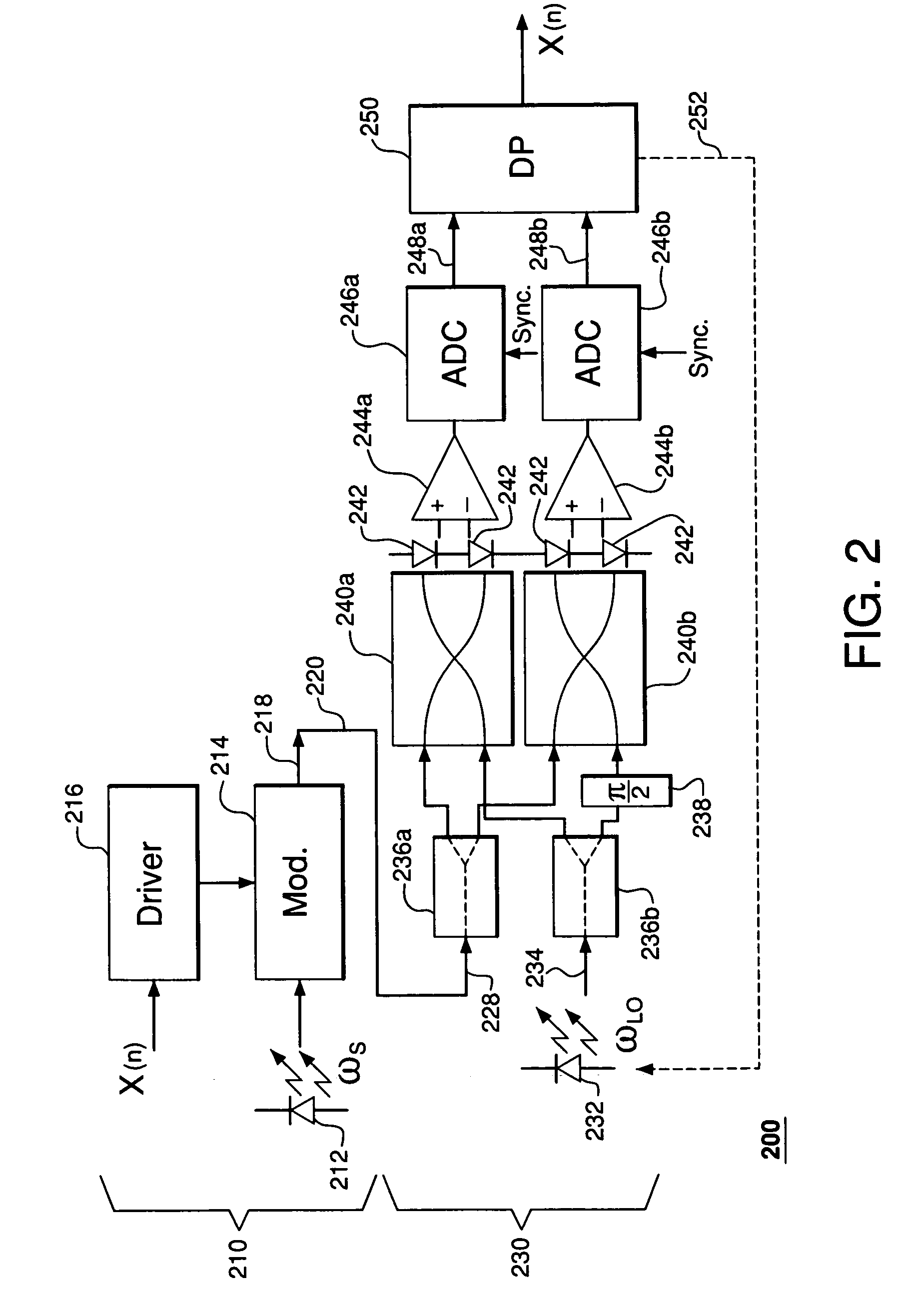Recursive phase estimation for a phase-shift-keying receiver
- Summary
- Abstract
- Description
- Claims
- Application Information
AI Technical Summary
Benefits of technology
Problems solved by technology
Method used
Image
Examples
Embodiment Construction
[0020]FIG. 1 graphically shows a representative quadrature-phase-shift-keying (QPSK) constellation that can be used in various embodiments of the invention. Symbol set A4 of the QPSK constellation has four symbols labeled (0) through (3) that are described by Eq. (1):
A4=±1,±j (1)
where symbols (0) and (2) lie on the real (Re) axis of the complex plane, and symbols (1) and (3) lie on the imaginary (Im) axis of the complex plane. Using the constellation of FIG. 1, data are encoded in a differential manner by assigning a particular two-bit value to each transition between the constellation symbols. The arrows in FIG. 1 illustratively show four possible transitions that involve symbol (0) as a start state, with the assigned binary values indicated next to the respective arrows. For example, the (0)→(1) transition is assigned a binary value of 00. Similarly, the (0)→(2) and (0)→(3) transitions are assigned binary values of 10 and 11, respectively. Finally, the (0)→(0) transition is assi...
PUM
 Login to View More
Login to View More Abstract
Description
Claims
Application Information
 Login to View More
Login to View More - R&D
- Intellectual Property
- Life Sciences
- Materials
- Tech Scout
- Unparalleled Data Quality
- Higher Quality Content
- 60% Fewer Hallucinations
Browse by: Latest US Patents, China's latest patents, Technical Efficacy Thesaurus, Application Domain, Technology Topic, Popular Technical Reports.
© 2025 PatSnap. All rights reserved.Legal|Privacy policy|Modern Slavery Act Transparency Statement|Sitemap|About US| Contact US: help@patsnap.com



